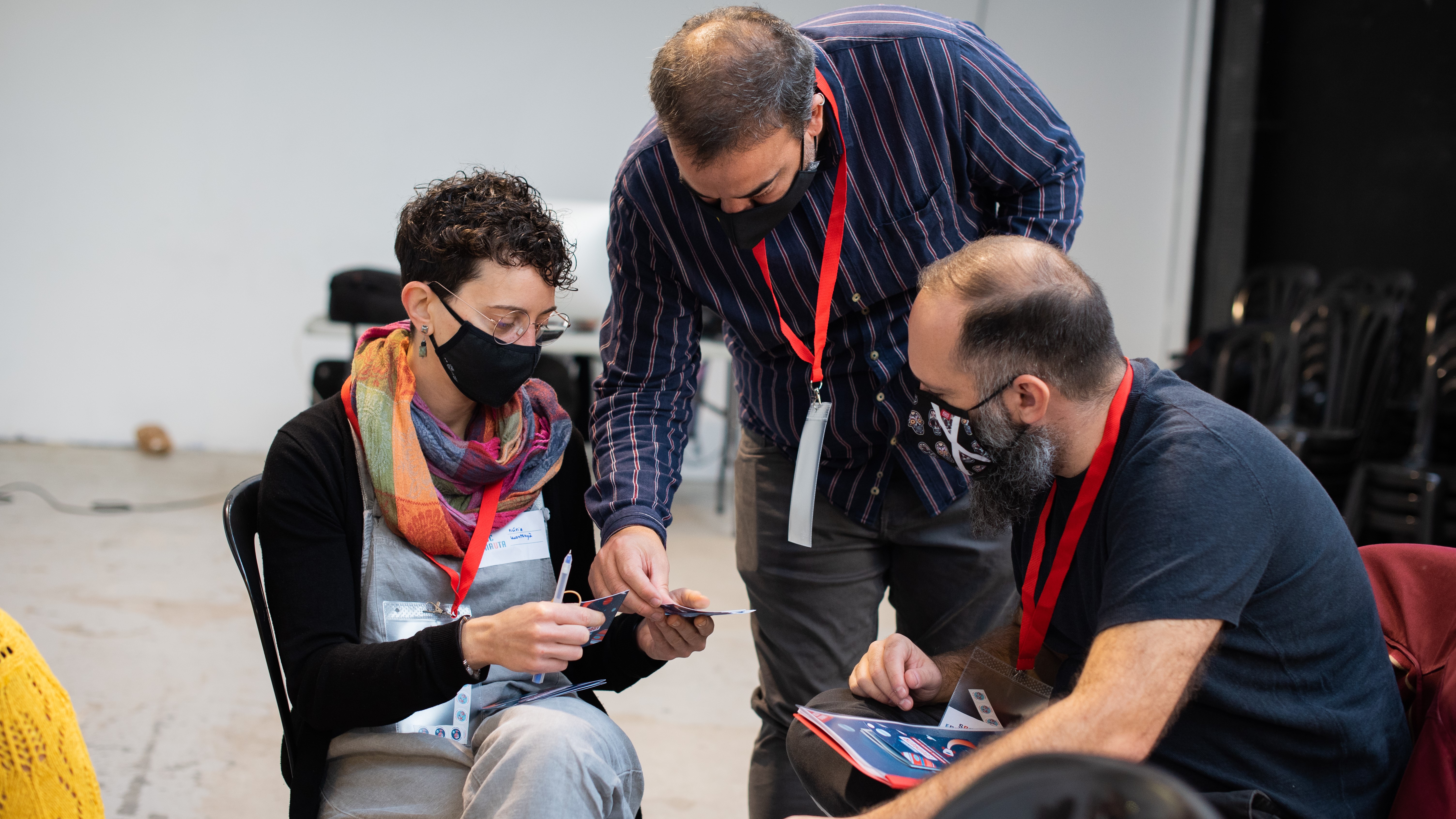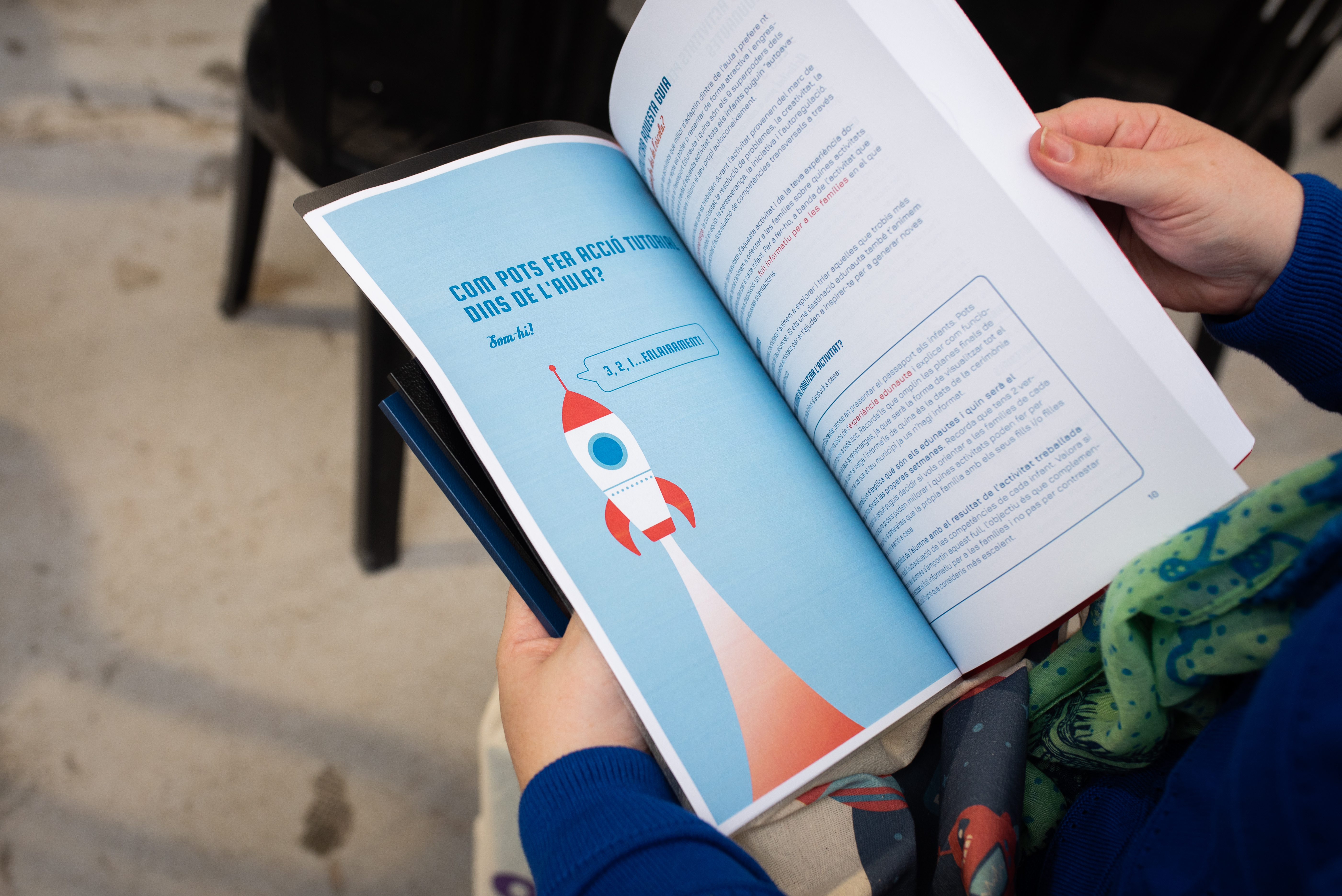Why are different geographical areas joining the Edunauta Passport?
23/02/2022
- Guaranteeing out-of-school education in municipalities based on criteria of equity and quality is a key challenge in training and supporting Edunauta areas
How can we guarantee the extended right to education beyond the school environment? How do we allow more children and adolescents to benefit from good quality, accessible extracurricular activities? Educació 360 is promoting various initiatives, proposals and models that inspire, guide and support municipalities to place educational equity at the heart of their public policy.
29 geographical areas are already committed to the Edunauta Passport as a tool for educational and community invigoration in terms of equity and quality.
The Edunauta Passport is one of these tools and it is expanding across various communities in Catalonia. This year there are already 29 geographical areas, involving town councils, regional councils and networks of #CentresEducatius360 schools, which have committed to this programme as a tool for educational and community invigoration in terms of equity and quality. Three of them – the town councils of Tordera, Barberà del Vallès and Maçanet de la Selva – participated in the most recent training sessions in the programme and we would like to share with you some of the main reflections that emerged, illustrating why many municipalities are joining the Edunauta Passport.

What challenges does it help to solve in the municipalities?
When a new geographical area joins the programme, it does so with a clear, defined aim of providing more and better opportunities to children in the municipality and indeed because the Passport affords new solutions enabling them to capitalise on all of the educational and community resources in their setting. The Passport helps to make this aspiration a reality by coordinating responses to various educational challenges:
- How to increase and connect educational opportunities in the local setting which are accessible for all children in the area, especially those in a socially disadvantaged situation: it engenders a narrative of change; moreover, it enables the organisation of activities and reaches out to children and families, etc.
- How to plan new opportunities to assure a balanced, high-quality offer that does not leave any child behind: it helps to chart and identify potential shortcomings in the extracurricular activities offered, and it contributes to generating and adapting quality proposals that deliver meaningful learning experiences.
- How to connect and network educational facilities, organisations and agents in the community in and out of school to strive for shared equity and quality: it is a community tool that interweaves empathy and shared work, links the community environment, connects schools and enhances learning opportunities.
- How to personalise, acknowledge and highlight the value of learning beyond the school environment: by establishing learning pathways where children are placed at the core of their learning process and can choose those activities which are most appealing, motivating or which involve discovery; by using the Edunauta Passport as a learning diary where they can record everything they learn and their impressions; and by providing a time to celebrate the learning they have undertaken during the event at the graduation ceremony.
- How to approach children’s families: the programme presents an appealing, relatable story that acts as a catalyst to encourage children to make use of it. The Passport is also a tool for teachers aimed at working with families to make it easier to recommend of out-of-school activities and to expand on the spectrum of effective support strategies.
Related: Read the article What have we learnt from the Edunauta Passport? Lessons and challenges to continue to connect learning
Why is it important to reflect on these challenges in training forums in Edunauta areas?
When a new area joins the programme it does so with a clear, defined goal to provide more and better opportunities to children in the municipality, but it also has reservations and doubts about the prospect of how the Edunauta Passport can be successfully implemented according to the particular context of its municipality.
Ever since its launch, the programme has placed huge relevance on training and support in those areas which implement the Edunauta Passport with the goal of them being able to accomplish their full potential in accordance with their requirements and pace of implementation.
Initial training is aimed at enabling an early immersion into the Edunauta Passport and gaining an acquaintance of all the features it provides in greater detail, while beginning to reflect together on how the tool will help bring about changes.
Individuals who participate in this training have the chance to embark on a collective, shared exercise. Likewise, it provides a forum for engaging and meeting with other geographical areas. This forum and collective work allow experiences to be shared and previous ideas to be drawn on, helping to build confidence and to pursue the task of thinking about and reflecting on how to implement the Edunauta Passport in each area in a much more enhanced manner.
The areas that are joining the project this year – Barberà del Vallès, Maçanet de la Selva and Tordera – are settings which have a history of delivering initiatives related to community education which they firmly believe in and wish to continue to promote, strengthen and improve.
Would you like to join the Edunauta Passport project?
The Edunauta Passport is open to all geographical areas that wish to promote educational equity out of school. Do you want to join? Get in touch at hola@passaportedunauta.cat
